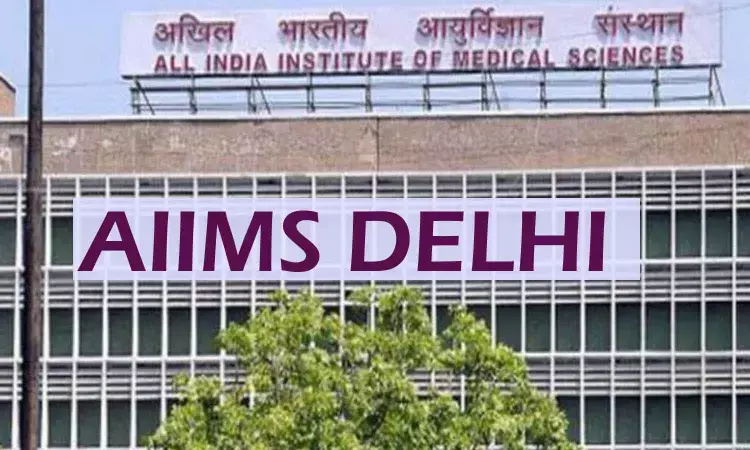- Home
- Medical news & Guidelines
- Anesthesiology
- Cardiology and CTVS
- Critical Care
- Dentistry
- Dermatology
- Diabetes and Endocrinology
- ENT
- Gastroenterology
- Medicine
- Nephrology
- Neurology
- Obstretics-Gynaecology
- Oncology
- Ophthalmology
- Orthopaedics
- Pediatrics-Neonatology
- Psychiatry
- Pulmonology
- Radiology
- Surgery
- Urology
- Laboratory Medicine
- Diet
- Nursing
- Paramedical
- Physiotherapy
- Health news
- Fact Check
- Bone Health Fact Check
- Brain Health Fact Check
- Cancer Related Fact Check
- Child Care Fact Check
- Dental and oral health fact check
- Diabetes and metabolic health fact check
- Diet and Nutrition Fact Check
- Eye and ENT Care Fact Check
- Fitness fact check
- Gut health fact check
- Heart health fact check
- Kidney health fact check
- Medical education fact check
- Men's health fact check
- Respiratory fact check
- Skin and hair care fact check
- Vaccine and Immunization fact check
- Women's health fact check
- AYUSH
- State News
- Andaman and Nicobar Islands
- Andhra Pradesh
- Arunachal Pradesh
- Assam
- Bihar
- Chandigarh
- Chattisgarh
- Dadra and Nagar Haveli
- Daman and Diu
- Delhi
- Goa
- Gujarat
- Haryana
- Himachal Pradesh
- Jammu & Kashmir
- Jharkhand
- Karnataka
- Kerala
- Ladakh
- Lakshadweep
- Madhya Pradesh
- Maharashtra
- Manipur
- Meghalaya
- Mizoram
- Nagaland
- Odisha
- Puducherry
- Punjab
- Rajasthan
- Sikkim
- Tamil Nadu
- Telangana
- Tripura
- Uttar Pradesh
- Uttrakhand
- West Bengal
- Medical Education
- Industry
COVID-19 policies of Govt driven by babus not epidemiologists: AIIMS Gastro HOD

"Transparency in terms of making details of discussion and decisions of scientific advisors to the government public would give the wider scientific community a chance to offer constructive criticism on policies and perhaps help in course corrections," he said in a letter.
New Delhi - A senior doctor at AIIMS has criticised the government's policies and communication strategies to deal with the COVID-19 pandemic, saying it was driven by clinicians and bureaucrats instead of epidemiologists and public health experts.
In a letter to the editor of the Indian Journal of Public Health, Dr Anoop Saraya, the head of the Department of Gastroenterology at the AIIMS, said the success of any advisory group of scientists depends on a "culture of openness, independence, and diversity of opinion".
Read Also: AIIMS Nurses Union write to Director Guleria demanding strict implementation of uniform 4-hour shift
"Unfortunately, this culture of openness has been conspicuous by its absence when it comes to the government''s scientific advisory bodies on the pandemic, perhaps because most of them comprise government employees.
"Transparency in terms of making details of discussion and decisions of scientific advisors to the government public would give the wider scientific community a chance to offer constructive criticism on policies and perhaps help in course corrections," he said in a letter.
Further, open and transparent sharing of data with scientists, public health experts, and the public at large will strengthen pandemic control measures and help in building consensus in India, the letter stated.
Dr Saraya, who has authored several papers on public health in national and international journals, emphasised in the letter that addressing the COVID-19 pandemic and its effects on society requires more than the actions of healthcare professionals and policymakers alone.
It calls for the engagement of citizens, governments at all levels and a diverse array of organizations and individuals involved in policymaking processes and policy implementation, he said. "In this regard, the government''s leadership group also lacks social scientists and community voices, who could work on community engagement."
In his letter, Dr Saraya said that toward the end of the nationwide lockdown India started reporting a surge in COVID-19 infections and deaths. This was contrary to the standard government position till then, he said.
"The surge led to contradictory responses by health leaders of the Union government," he said referring to a health ministry official''s claims that India''s epidemic curve was "relatively flat" and depending on how the public responds to the virus, the peak "may never come", while a senior doctor of the government''s core COVID-19 team had said that the number of cases in India is likely to peak in next one to two months
Formulating and adopting policy responses is ultimately the responsibility of government leaders as they make strategic decisions, support coordination, and collaboration and provide public accounts of events, Dr Saraya said.
However, scientific and technical experts are central in policy responses to uncertain problems, he added.
The letter to the editor also mentions how a group public health experts comprising doctors from AIIMS and two members of an ICMR research group on COVID-19 have expressed concern about the inadequate planning and coordination of the response to the pandemic and have suggested mechanisms for better planning and coordination.
A joint statement by the Indian Public Health Association and the Indian Association of Preventive and Social Medicine representing the very wide community of public health academics, practitioners, and researchers in India had recently urged the government to form a Public Health Commission with task-specific working groups to provide real-time technical inputs to the government.
Medical Dialogues Bureau consists of a team of passionate medical/scientific writers, led by doctors and healthcare researchers. Our team efforts to bring you updated and timely news about the important happenings of the medical and healthcare sector. Our editorial team can be reached at editorial@medicaldialogues.in.


